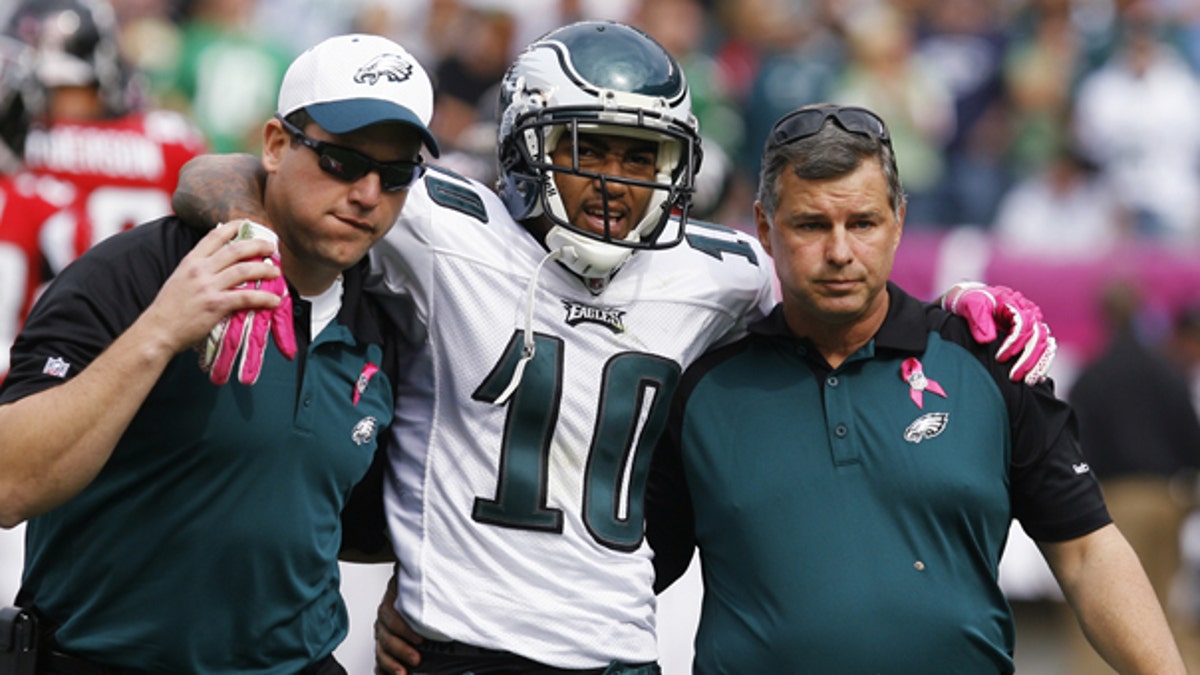
Oct. 17: Philadelphia Eagles' DeSean Jackson is helped from the field after sustaining an injury against the Atlanta Falcons during second quarter of NFL football action in Philadelphia. He was later diagnosed with a concussion. (Reuters)
In the past year, concussions have become a huge topic of concern, and there’s good reason for it. It’s estimated that 300,000 athletes suffer concussions each year in the United States – and that’s just football-related head injuries.
Now, researchers at the University of Pennsylvania School of Medicine have come up with a simple sideline-test that can detect head trauma in athletes in just one minute.
It’s called the King-Devick test and involves athletes reading single digit numbers shown on index-sized cards. The test is so effective because it’s able to capture impairments of eye movement, attention, language and other symptoms of impaired brain function, according to the researchers.
Any increase in the time it takes to complete the test – the more likely a person suffered a head injury.
"Concussion is a complex type of brain injury that is not visible on the routine scans we do of the brain, yet is detectable when we measure important aspects of brain function, such as vision," the study's lead author, Kristin Galetta, said in a news release. "The K-D test is only one test on the sidelines, though, and the diagnosis of concussion requires a combination of tests and input of medical professionals."
In most cases, more extensive testing is needed to document post-concussion symptoms, but when it comes down to coaches making a call whether to remove a player or not –this simple test appears to be their best bet.
"This rapid screening test provides an effective way to detect early signs of concussion, which can improve outcomes and hopefully prevent repetitive concussions," the study's senior author, Dr. Laura Balcer, professor of neurology, ophthalmology and epidemiology at the University of Pennsylvania School of Medicine, said in a news release. "If validated in future studies, this test has the potential to become a standard sideline test for athletes."
The study appears in the current online edition of the journal Neurology and was funded by a grant from the National Eye Institute.
